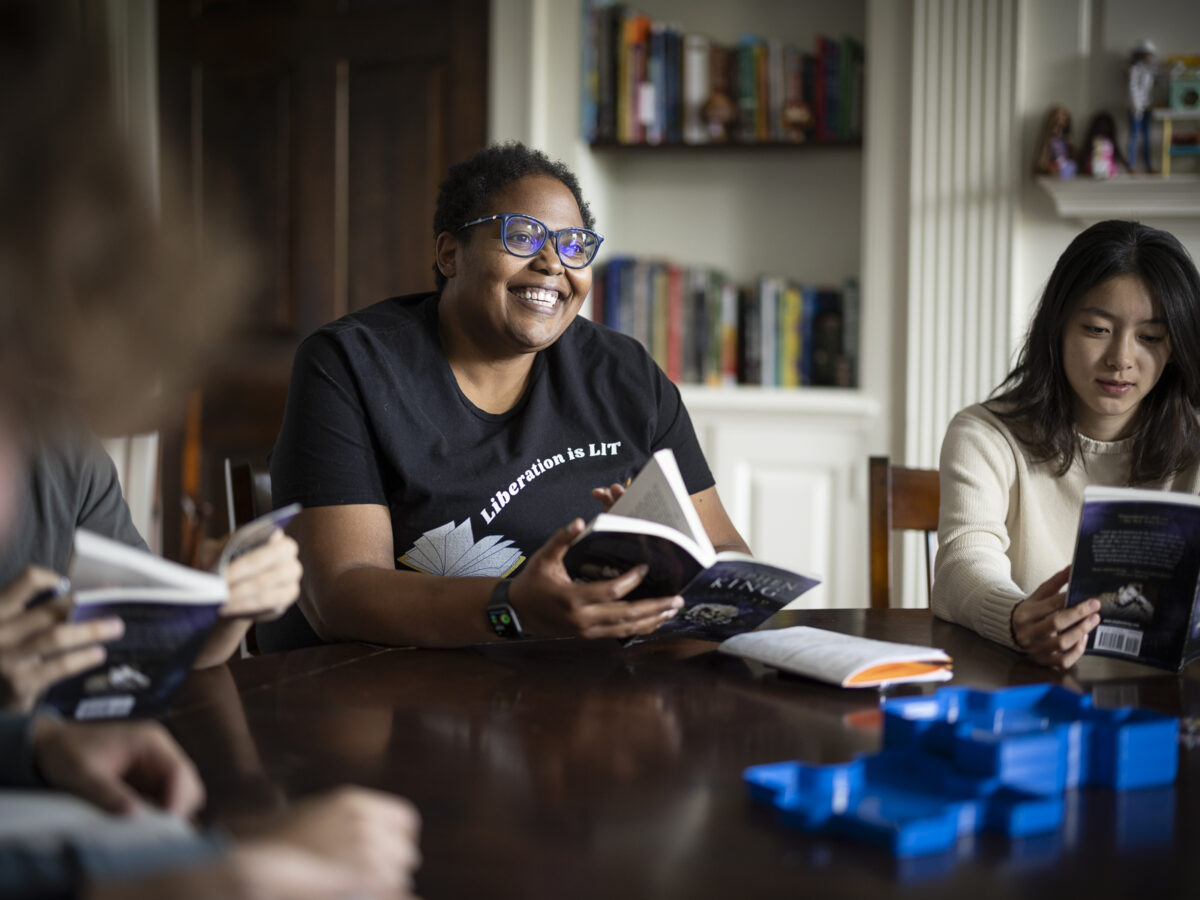Courtney Marshall

Whether it’s casually chatting about an afternoon Zumba class or diving deep into the racialized history of physical fitness, English Instructor Courtney Marshall knows how to get the conversation going.
Sometimes, she says, all it takes for students to find the gift of gab is a Barbie. “Toys, having things to do with their hands, really work to get ideas out there.” Along with her ever-growing collection of dolls, Marshall brings a depth of experience to every dialogue. She holds a doctorate in English and a graduate certificate in women’s studies from UCLA.
Prior to joining Exeter’s faculty in 2016, she taught for six years at the University of New Hampshire. An active advocate for the incarcerated, Marshall also leads literacy groups for prisoners at the Northern New Hampshire Correctional Facility.
This year, the Kirtland House dorm head is taking on an additional role: associate dean of advising. “I love advising,” Marshall says. “People entrust their pride and joy with us, and it’s our job and our joy to be able to connect and support them and advocate for them, in addition to their families.”
Here’s a peek at a few of the icebreakers inside Marshall’s Phillips Hall classroom.
Portrait in the Closet
Marshall found this portrait of William H. Bolden, Exeter’s first Black faculty member, in her classroom’s closet and thought, “Who’s this guy?”
“Right now, I’m the only Black woman teacher in English, in all of the humanities,” she says. “There are no models for how to do this job in this body. I often turn to literature for those models and I turn to people who have done it before.”
Beyoncé
This desktop placard reminds students to consider their actions. “That’s always a question in class,” says Marshall, who taught a course last year examining Black women performers.“You want to say hello to somebody, but you’re not sure? I say, ‘What would Beyoncé do?’ If you think you want to turn in something late? I say, ‘What would Beyoncé do?’”
Barbies
Marshall brought her first Barbie to class to spark conversation about race and the psychological effects of segregation while teaching Toni Morrison’s The Bluest Eye.“I was caught up with the character Claudia and her white dolls,” Marshall says. “The one with the big Afro, she was first. I wound up buying more and more. I have one with a prosthetic leg, one in a wheelchair.”
The Black Book
“This is one of those books that I’m so glad my grandmother had the good sense to buy and make me look at,” Marshall says of the 1974 tome about the Black experience in America.“When I think about what my grandmother was able to make possible for me and my siblings, and for so many kids in the neighborhood, that is what pushes me in my teaching.”
Editor’s note: This article first appeared in the fall 2020 issue of The Exeter Bulletin.